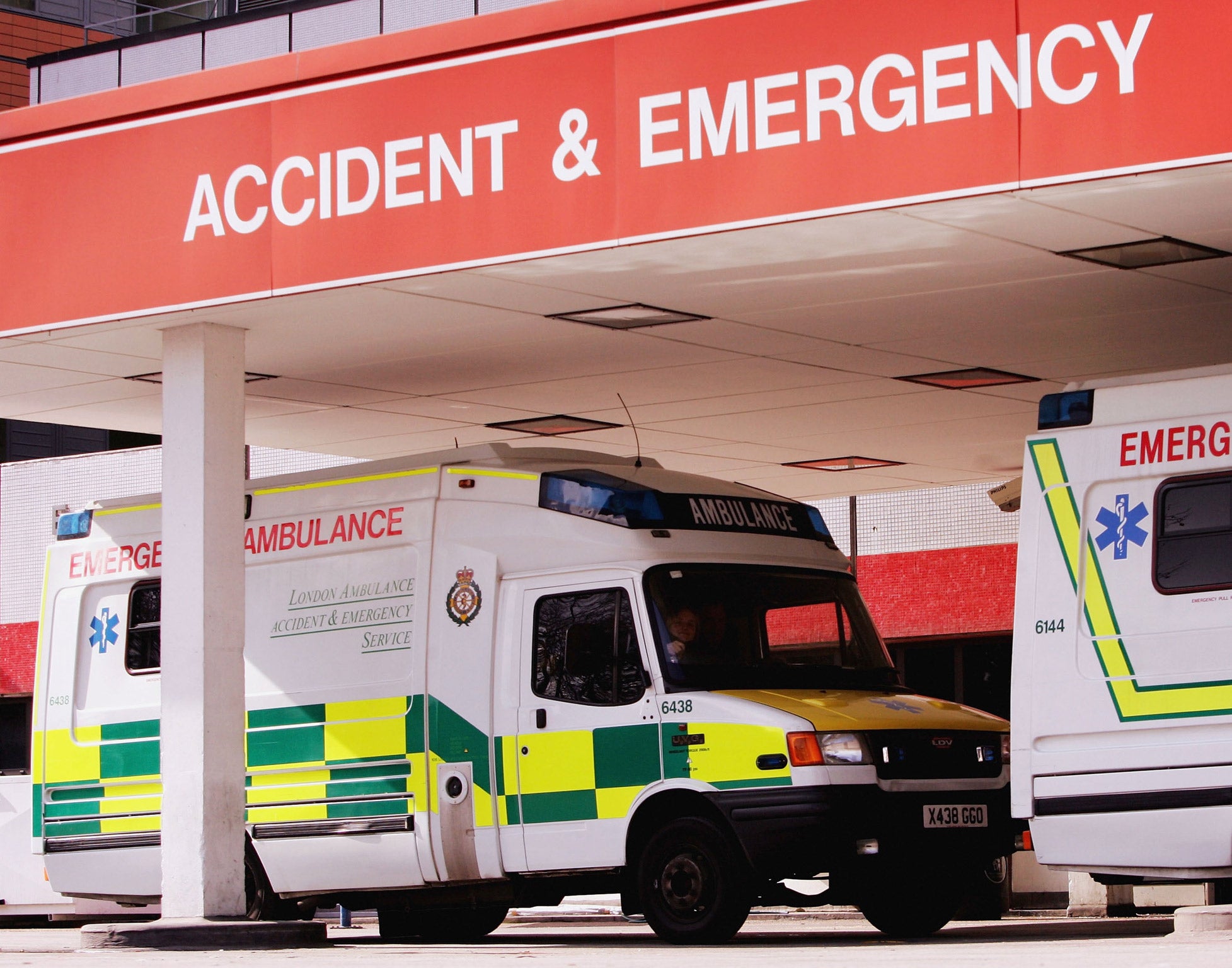Emergency treatment: A&E wards given £500m to avert winter care crisis – but Labour says it's not good enough
PM's announcement of extra cash for two years 'fails to tackle wider problems', say Labour

Your support helps us to tell the story
From reproductive rights to climate change to Big Tech, The Independent is on the ground when the story is developing. Whether it's investigating the financials of Elon Musk's pro-Trump PAC or producing our latest documentary, 'The A Word', which shines a light on the American women fighting for reproductive rights, we know how important it is to parse out the facts from the messaging.
At such a critical moment in US history, we need reporters on the ground. Your donation allows us to keep sending journalists to speak to both sides of the story.
The Independent is trusted by Americans across the entire political spectrum. And unlike many other quality news outlets, we choose not to lock Americans out of our reporting and analysis with paywalls. We believe quality journalism should be available to everyone, paid for by those who can afford it.
Your support makes all the difference.England’s struggling accident and emergency wards will get a £500m bailout to avert a winter crisis in urgent care, the Prime Minister has announced.
Waiting times at A&E hit nine-year highs earlier this year and an unprecedented number of trusts missed their targets in 2012. Doctors have warned of a coming crisis this winter, and MPs recently said that A&E wards would struggle to cope with a major flu pandemic.
The money will be allocated to the NHS trusts which have struggled the most, to help them cope during the two winters before the general election in May 2015. The Department of Health (DoH) is close to deciding how to allocate the first £250m fund for winter 2013/14, based on plans from Urgent Care Boards around the country.
It emerged in May that the health secretary Jeremy Hunt was eager to announce a bailout fund of between £300m and £400m, when leaked emails revealed that officials at the DoH had been forced to dissuade him from doing so.
The Government is understood to be anxious to avoid long queues at A&E next winter, in the run up to a general election campaign in which the Coalition’s stewardship of the NHS is set to be a key confidence issue for voters.
A source at the DoH said the money had been secured through “efficiencies” in the departmental budget, including savings on IT and admin costs. The money is separate from existing NHS commissioning budgets meaning no other services will lose funding.
“The additional funding will go to hospitals where the pressure will be greatest, with a focus on practical measures that relieve pinch points in local services,” David Cameron said. “By acting now, we can ensure doctors, nurses and NHS staff have the support they need and patients are not left facing excessive waits for treatment.”
Mike Farrar, the chief executive of the NHS Confederation, which represents all NHS service providers, said that the money was useful, but not a “longer-term solution”.
“These payments will be useful in the short term, but we need the system working together to tackle the challenges we are facing…One of the things many of our members are telling us is that it is vital they receive funding for winter pressures earlier in the year, so they can plan and respond effectively, rather than catching up with themselves once the floodgates have opened.”
Jamie Reed, Labour’s shadow health minister said that the fund failed to address wider problems in the NHS, including staffing problems.
"Today's announcement fails to mention the issue patients really care about - nurses on hospital wards,” he said. “Hospitals are running without enough staff, yet thousands of nursing jobs have been axed on David Cameron's watch. It's time he got a grip.”
The beleaguered NHS 111 non-emergency telephone line will also receive a £15m winter funding boost, the DoH said. The phone line has been blamed for increasing pressures on A&E, sending patients to hospital unnecessarily.
The money will be used differently at individual trusts. Health officials said it could be used to extend opening ours at walk-in centres, provide extra beds and appoint staff with specialist training in linking up hospitals with social care services, to reduce the number of frail elderly people making repeat visits to A&E.
Join our commenting forum
Join thought-provoking conversations, follow other Independent readers and see their replies
0Comments